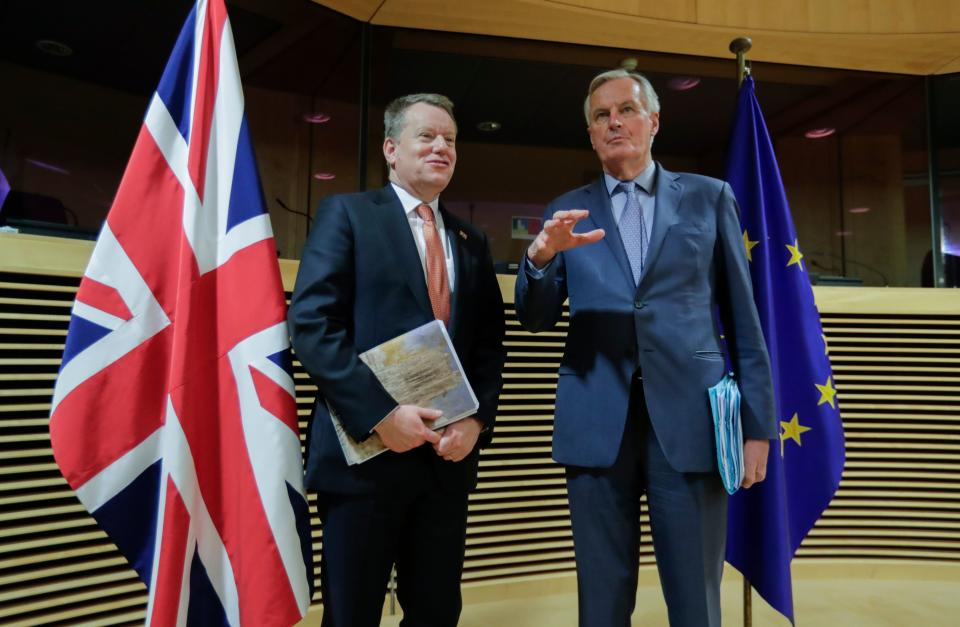Small firms call for Brexit transition vouchers amid negotiation deadlock

The Federation of Small Businesses (FSB) on Monday called for targeted financial support from the UK government to aid firms with their Brexit planning.
Noting that small businesses have been “flat out” dealing with coronavirus-related disruption over the past six months, the FSB said the introduction of so-called transition vouchers would allow firms to spend money on Brexit-related expertise, technology, and training.
“The transition period will soon be at an end but the small firms that make up 99% of our business community still have no clear sense of what they’ll be transitioning to,” said FSB national chairman Mike Cherry.
The call comes after officials on both sides of Brexit negotiations warned of the growing likelihood that the UK will crash out of the EU without a trade deal.
READ MORE: Virgin Atlantic to axe a further 1,150 jobs in restructuring
Despite several rounds of “intensified” Brexit negotiations in both London and Brussels, scant progress has been made.
“We have no certainty that we’ll reach a deal. I hope it will be possible — but not at all cost,” European Council president Charles Michel said last week.
“Sooner or later, the UK should clarify what they want. It’s not possible to leave the European club and at the same time keep all the benefits,” he said.
Though the UK officially left the EU on 31 March, it is currently in a transition phase and subject to the bloc’s rules.
On 31 December, the UK will leave the EU’s single market and customs union, introducing a series of hurdles for firms whose businesses rely on access to the bloc.
Prior to the striking of a transition agreement, firms had been told to prepare for the possibility of a so-called no-deal Brexit ahead of 31 March.
READ MORE: UK services sector sees sharpest increase in activity since 2015
But the FSB warned on Monday that the coronavirus pandemic had put firms in an even worse state of readiness.
“The economy is in a very different place today compared to the last time we were told to prepare for a no-deal outcome. Small firms don’t have the time or money to get across new bureaucracy or stockpile,” said Cherry.
Calling on negotiators to agree on a business-friendly deal, Cherry said that transition vouchers marked a “sensible way forward.”
“If the government wants firms to take preparatory action over the next few months, it needs to help them to do so. Business minds are, understandably, still very much focussed on coronavirus,” he said.

 Yahoo Sports
Yahoo Sports 
